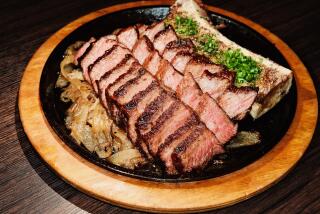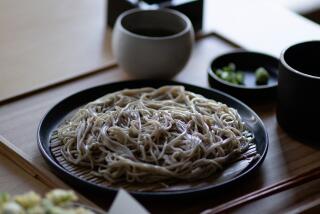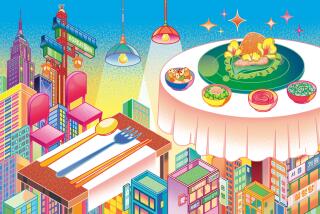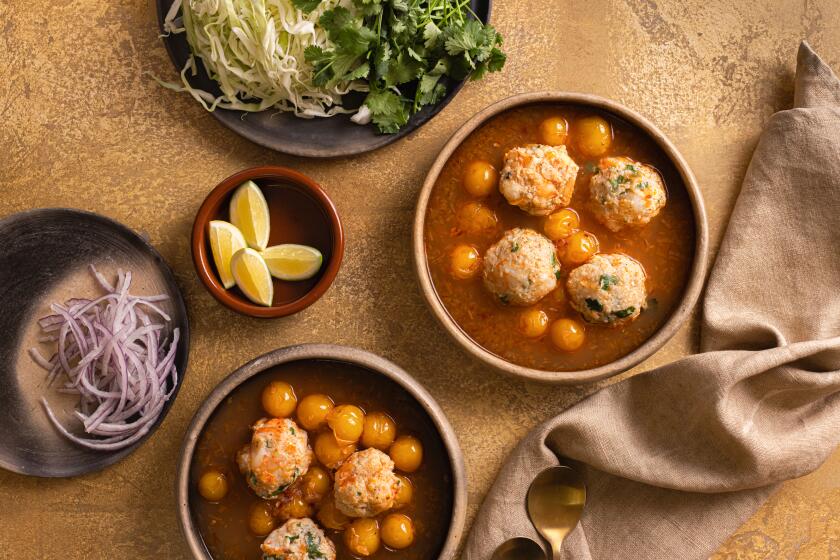The Find: Torihei
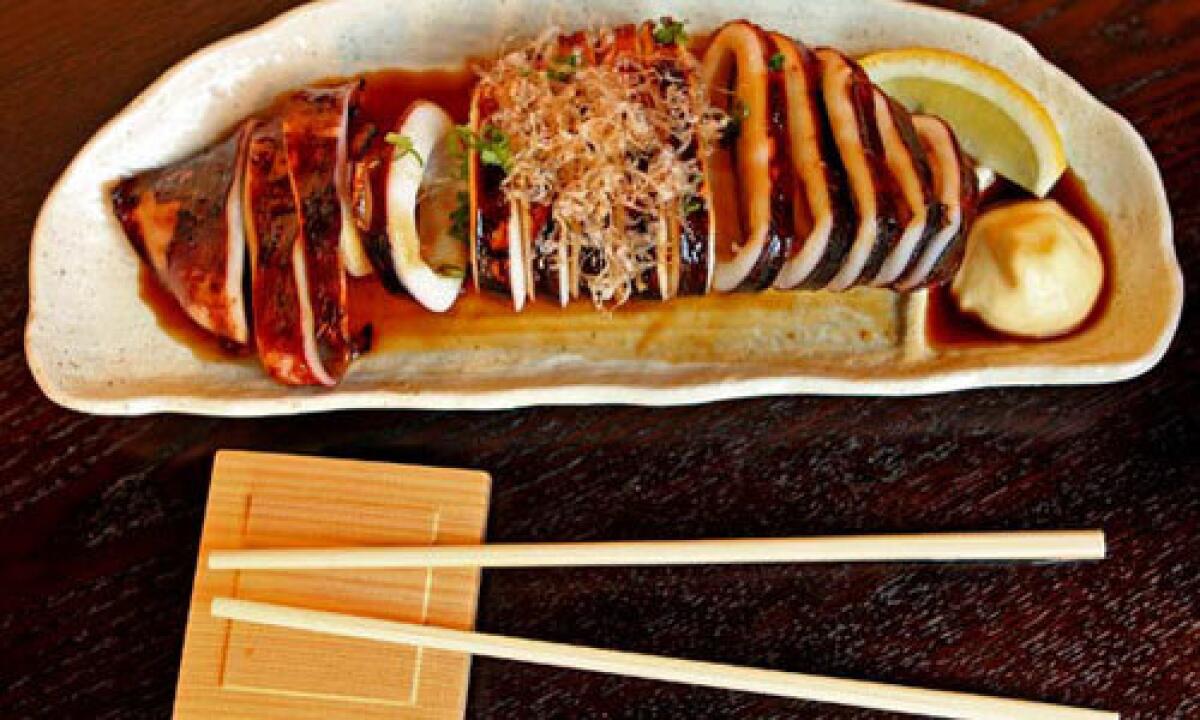
There’s a distinct division in Torihei’s kitchen. At one end, a huge pot of dashi broth sits just below a boil as it seethes a continuous cloud of steam. Opposite the pot, skewers cook with a low, gratifying hiss on a crackling charcoal grill. The kitchen partitions its duties, but not its vision -- Torihei is the collaborative effort of chefs Masataka Hirai and Masakazu Sasaki.
The pair, each tasked with working half the restaurant’s double-edged menu, has created an inseparable combination of yakitori and simple, soupy oden. The Torrance restaurant’s edible union can be traced all the way back to Japan, where Hirai’s family operates like-minded restaurants in Tokyo and Yokohama.
Torihei is at the center of a lot of great Japanese cooking, occupying a roughly 30-seat space in the same South Bay strip mall that’s home to the venerable Musha. But it’s a testament to the success of Hirai and Sasaki’s culinary coupling that the restaurant is already at capacity -- arrive during peak hours and you’ll bump shoulders with workers sipping sake and Sapporo, couples sharing skewers and friends methodically picking through their paper menus.
Oden is the realm of chef Sasaki. Typically, it’s a one-pot dish, a dashi broth-based stew packed with several different ingredients. It’s the kind of comfortable cooking that in L.A. often doesn’t make it out of the house. At Torihei, however, oden is elevated: Each a la carte oden item is simmered and served separately, effectively turning a single soup into an entire small-plates menu.
Sublime daikon
The most common oden entry point is a block of long-simmered daikon that’s turned nearly translucent by its time in the subtly salty dashi. Plated in a shallow pool of broth, topped with seaweed and bonito shavings and accompanied by a bit of Japanese mustard, the daikon is a pleasant start.
Still, it’s no match for Torihei’s fresh fish cake. Unlike its processed counterpart (which at its worst seems almost rubberized), Torihei’s fish cake is without fault -- a faintly fishy triangle that floats with the same airy texture as a marshmallow.
Mochi kinchaku is another elegant option -- a fried-tofu pouch wrapped around a molten mochi core and cinched together like a tiny kinchaku purse. But the best of the oden menu is the hanjuku tamago, a soft-boiled egg split in two and topped with cod roe. The yolk is still liquid, but it doesn’t subsume the roe -- the jewel-orange eggs rest atop the yolk like glistening pearls. Set in the mild brine of the dashi, the eggs are each other’s consummate complement.
Torihei’s yakitori is equally compelling. Threading each skewer with jidori chicken, the restaurant clearly reveres the charred art. Even the accompanying spices -- shichimi togarashi, a brick-colored mix of chiles, orange zest, sesame and the like, and sansho, ground Sichuan peppercorns that pack a numbing citric punch -- are respected, presented in beautiful boxes with serving spoons as thin as matchsticks.
Chef Hirai’s tsukune, or chicken meatballs, are particularly good, fluffy spheres that melt in your mouth like some meaty candy. Both the chicken thighs and chicken tail are supremely tender. Even otherwise boring cuts such as chicken breast are excellent -- especially when dressed with a streak of ume plum sauce and shiso.
Outstanding options
The charcoal grill is also the source of a number of outstanding nonchicken dishes, including surprisingly delicate slices of beef tongue, fatty pork and a daunting but gratifying whole grilled squid.
Recently, Torihei added a small sashimi selection as well as a number of larger izakaya-inspired dishes. But it’s the dual appeal of the oden and yakitori that truly drives the kitchen -- the two-pronged pursuit of a singular perfection.
More to Read
Eat your way across L.A.
Get our weekly Tasting Notes newsletter for reviews, news and more.
You may occasionally receive promotional content from the Los Angeles Times.
